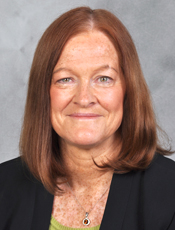The Academy of Pediatrics recommends babies be placed on their back to sleep
By Kathleen M. Dermady
Sudden unexpected infant death (SUID) is the leading cause of death in babies younger than 1 year. For most, the cause of death is unexplained by illness, anomaly or trauma and is most frequently attributed to an unsafe sleep setting.
About 90% of the deaths occur before 6 months of age. Each year about one in 1000 babies die of SUIDS; the incidents in Black and Native American children is two to three times higher than white. In the last 10 years, 56 babies have died in Onondaga County.
In the last 10 years, 56 babies have died of sudden unexpected infant death in Onondaga County.
For parents and caregivers, fatigue is a common factor. Holding a sleeping baby is one of the most rewarding warm feelings. While it is tempting to fall asleep with your baby or place baby in a lush and cozy chair or bed, this can be a fatal mistake. Grief and guilt overwhelm most families.

In 1992 The Academy of Pediatrics, recommended babies be placed on their back to go to sleep. The number of infant deaths decreased by 50%. Studies have found “back to sleep” improved cerebral (brain) oxygenation compared with lying face down. Some caregivers place babies on their sides, often propped with pillows or blankets. All babies move, and it is more common for a baby to roll face down than face up. Items used to prop a baby can become deadly if the baby rolls into them and suffocates. More than half of infant deaths are found to be caused by accidental suffocation and strangulation in bed (ASSB).
After a baby dies, teams of professionals evaluate the infant through examination and autopsy, review any medical or known risk factors and perform re-enactment, asking parent(s) and caregivers to replay the last hours and moments of the infant’s life.
For some, a cause is not determined, but unsafe sleep and risk factors that may have contributed to an unsafe environment for the baby are evaluated.
Grandparents and caregivers are in a unique role to provide support and guidance to new and exhausted parents. Recognizing parental fatigue and offering to care for a new baby to allow parents to recover from birth and the demands of a newborn can be lifesaving. A newborn feeds every two to three hours and should not be expected to sleep through the night. Many new parents are aware of the back to sleep recommendations, but are often easily influenced by family or friends who provide alternative advice.
The evidence has shown that the sleep-wake pattern of a baby is more arousable positioned on their back and that this may be protective against infant death.
Kathleen M. Dermady is a member of the Onondaga County Child Fatality Review Team. She holds certification in midwifery, obstetrics and gynecology.
